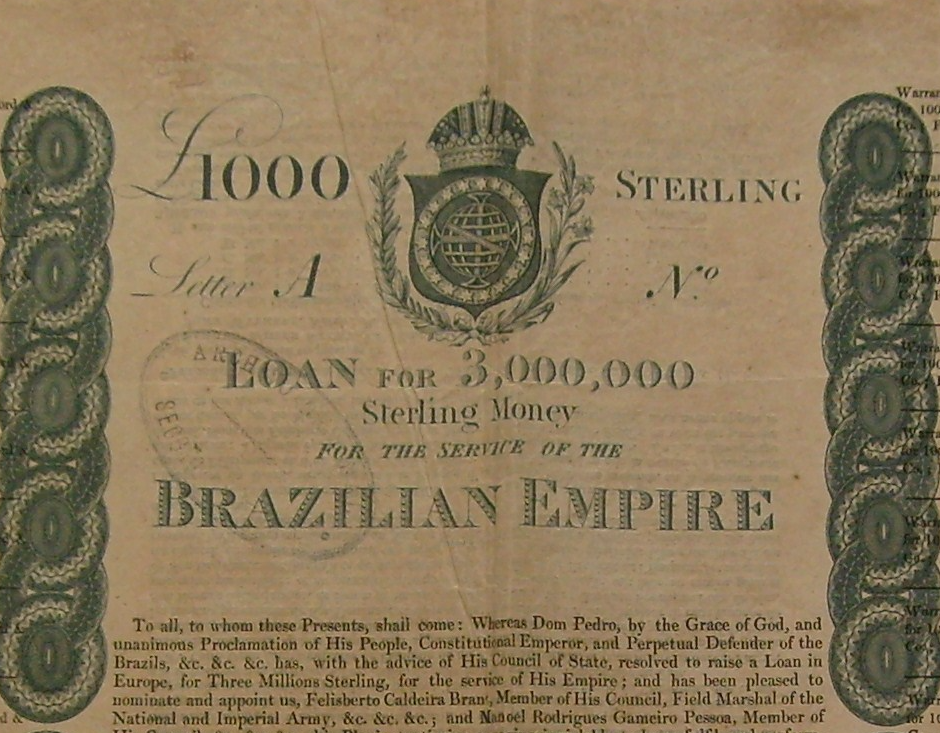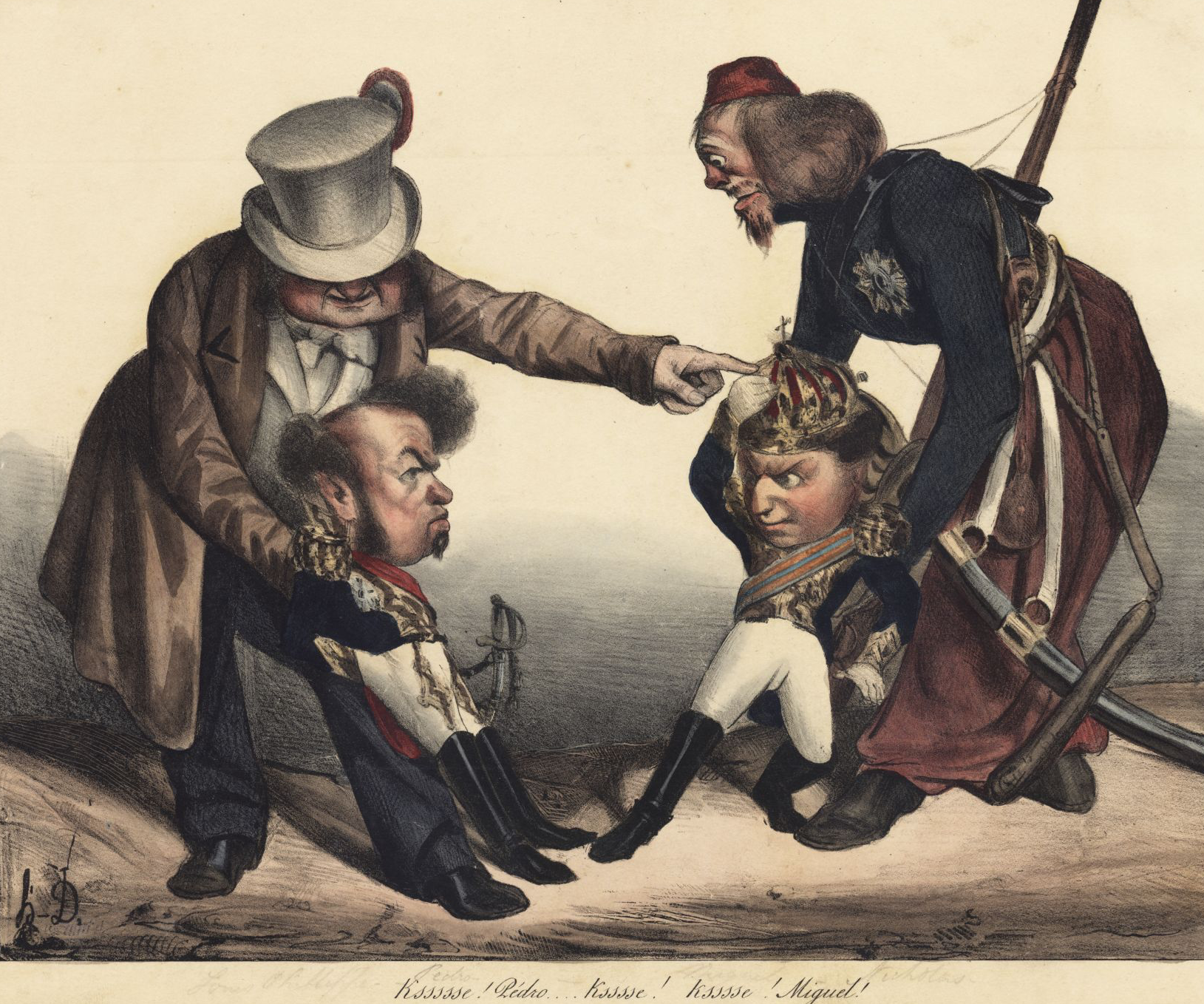Other
Media
Research on railroads: Elio Gaspari on Brazil's 19th-century railroads as public-private partnerships (PPP's), Folha de S.Paulo and O Globo (2004); Samuel Pessôa, "Trilhos do Desenvolvimento: Nosso subdesenvolvimento tem sido construído por nós mesmos, não por gringos," in Folha de S.Paulo (2018); interview with João Soares in Deutsch Welle (Brasil), “Brasil hoje não tem posição no mercado que tinha no século 19,” (2018); Marcelo Toledo on Trilhos do Desenvolvimento in Folha de S.Paulo (2018); research on impact of 19th-century railroads (Order Against Progress/Trilhos do Desenvolvimento) noted in interview of Guilherme Quintella in Brazil Journal (2018) ["País que perde o trem briga pelo diesel"]; research highlighted on the Blog do IBRE of the Instituto Brasileiro de Economia of the Fundação Getúlio Vargas (2017 ["Papel histórico das ferrovias no Brasil"]); mention in Folha de S.Paulo of research on railroad subsidy and regulation; quoted on the question of government subsidies to failing railways as bailouts, Folha de S.Paulo,
Research on sovereign debt: mention in Vincius Mota’s column (along with the research of the great Thomas Kang) at the Folha de S.Paulo (September 2019): Inglorious Revolution highlighted by Elio Gaspari in the Folha de S.Paulo and O Globo (2016); José Augusto Ribas Miranda, "Por que o Brasil não teve uma Wall Street?" (2018); Ulisses Ruiz-de-Gamboa ["Como era solvente meu Império"] in Diário do Comércio (March 2016); Asher Levine, "What a 19th Century Default Says About Brazil's Crisis Today," in Americas Quarterly; Jorge Felix in Valor Econômico, "Lições da história econômica;" Fabio de Castro, "Quem não deve não tem crédito"
Other: Keynote presentation at the meeting of the Brazilian Association of Post-Graduate Programs in Economics, [Anpec] {“Para que serve a história econômica? O atraso persistente do Brasil”] (December 2018); quoted in Paulo Trevisani's piece at Wall Street Journal on the loss of the Museu Nacional in Rio de Janeiro to fire; interviewed on the Brazilian economy at IREE (July 2018); interviewed for Newsday, BBC World Service on federal intervention in Rio de Janeiro (February, 2018); talk on "Origins of Executive Constraints in Brazil" (@49:39) for the Tinker Conference on the Rule of Law in Latin America, at Stanford (December 2017) [mention in Vinicius Mota, "Luta contra corrupção no Brasil é árdua," in Folha de S.Paulo (January, 2018)]; talk on institutions, crony capitalism, and corruption at Centro Mackenzie de Liberdade Econômica covered in Folha de S.Paulo (October, 2017); interviewed for Newsday BBC World Service (July 2017) on the corruption conviction of former president Lula in Brazil; interviewed by Rafael Cariello on Renato Perim Colistete and his work on education in Brazil, in "Pátria Iletrada," revista piauí (January 2017) (complete text here); by Luís Artur Nogueira for "Os homens da economia," IstoÉ Dinheiro (January 2017); by Márcio Kroehn for "Os presidentes num País em ebulição," IstoÉ Dinheiro (January, 2017); by Andy Uhler for Marketplace (NPR) on Brazil's economic privatization proposals (September 2016); interviewed for Newsday BBC World Service (August 2016); interviewed on BBC International (August 2016); interviewed by Márcio Kroehn in IstoÉ Dinheiro ("O Brasil tem um estado enorme para um país emergente") (February 2016); interviewed by Rafael Cariello on Nathaniel Leff, in "Looking for Leff," revista piauí, (January 2016)(English/Portuguese); research mentions in the Folha de S.Paulo on education here; and on party politics in the late empire in O Estado de S.Paulo; quoted in the Wall Street Journal.
Brazil notes
Summerhill, "Brazil's Meltdown," Yale Books Unbound, December 2015
On the gravity of the economic problem that Brazilians face, read Mansueto de Almeida Jr., Marcos de Barros Lisboa, and Samuel de Abreu Pessôa, O Ajuste Inevitável (2015), read this summary, and watch this interview with the authors (in Portuguese; brief summary in English here). On fiscal dominance and the highest interest rate in the world see Gustavo Franco, "Moeda e dominância fiscal" (2015). For the origins of current crisis, read the Insper working paper by Marcos Lisboa and Zeina Abdel Latif, Democracy and Growth in Brazil (2013) [Casa das Garças conference version here], and an interview on the role of businesses in creating the crisis ("Empresários também tem culpa"). For a visionary perspective on the difficult reforms that will be required: Marcos Lisboa and Samuel Pessôa, "As meias-entradas no caminho do ajuste econômico" in Folha de S.Paulo (2016). On what is necessary to overcome decades of productivity stagnation, read João Manoel Pinho de Mello’s “Productivity as the Key to Sustainable Growth in Brazil,” and Pedro Cavalcanti Ferreira and Renato Fragelli Cardoso, “Produtividade, eficiência, e atraso” in Valor (2018). Pressing economic matters: Lisboa, “Acelerar Reformas;” Carazza, “o Teto Ameaça Desabar.” For how Brazil works: Bruno Carazza's indispensable book, Dinheiro, Eleições e Poder (2018).
About
William Summerhill is Professor of History at UCLA, and a Visiting Fellow at Hoover Institution. Most of his research concerns Brazil's economic history, including the political economy of sovereign debt, banking and finance, railroads and the provision of infrastructure, and inequality. At present his work focuses on war, debt, and the institutional changes that were central to Brazilian state building in the 1820s.
He collaborates with Samuel de Abreu Pessôa, Edmilson Varejão (FGV), and Thomas Kang (UFRGS) in a project on the economic impact of education and education policy in twentieth-century Brazil; with Renato Perim Colistete (FEA-USP) [no Bial] on workshop activities in Brazil, and random nineteenth-century stuff; and with Leonardo Monasterio (ENAP) in a big-data, group project on long-run social mobility in Brazil.
His scholarly research has been supported by the Fulbright-Hays program, the Social Science Research Council, the American Council of Learned Societies, and the National Science Foundation. He has consulted for the World Bank and the private sector. He has been a National Fellow at the Hoover Institution, visiting professor at Insper, the École des hautes études en sciences sociales, FEA-Universidade de São Paulo, Universidade Presbiteriana Mackenzie, Universidade Estadual Paulista-Araraquara, and Stanford University, and a visiting research scholar at the Escola de Pós-Graduação em Economia of the Fundação Getúlio Vargas (EPGE-FGV). For 2023-2024 he is the lead Senior Editor of the Hispanic American Historical Review; serves on the editorial boards of Estudos Econômicos and Revista de Economia, and for a decade co-edited the Revista de Historia Económica - Journal of Iberian and Latin American Economic History.
Before (and occasionally after) taking up an academic career he served in the United States Army (my gen here).
Other links
c.v. at Currículo Lattes (CNPq, Brasil); some papers at Academia.edu; faculty page at UCLA; Center for Economic History at UCLA







